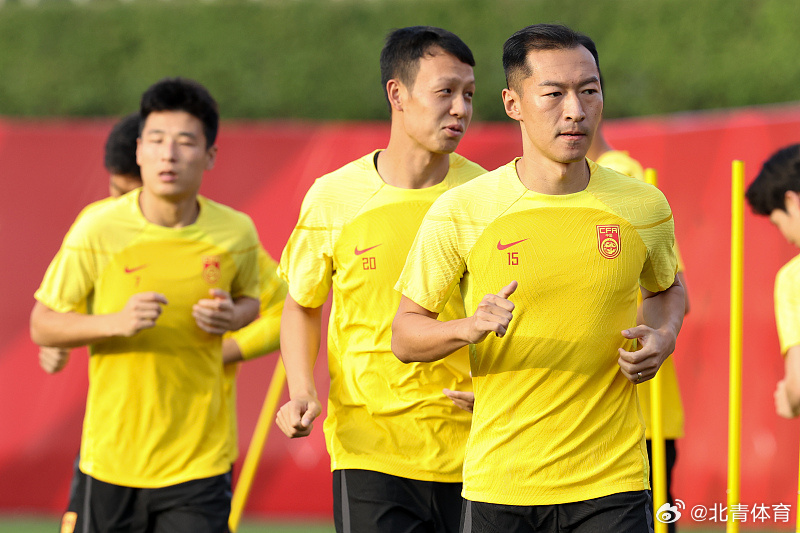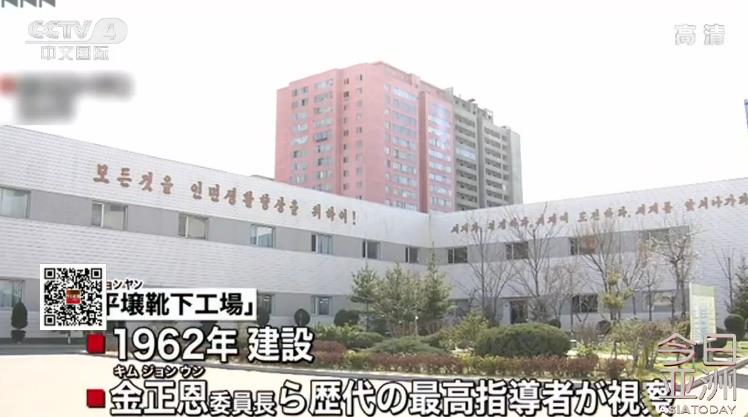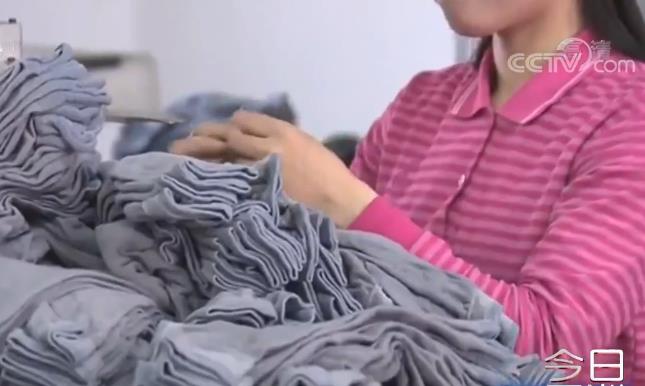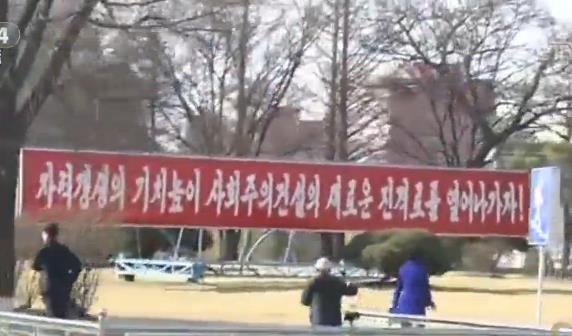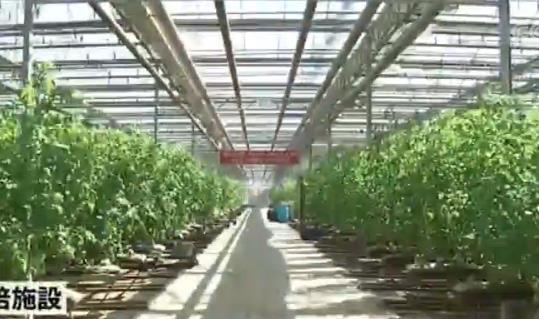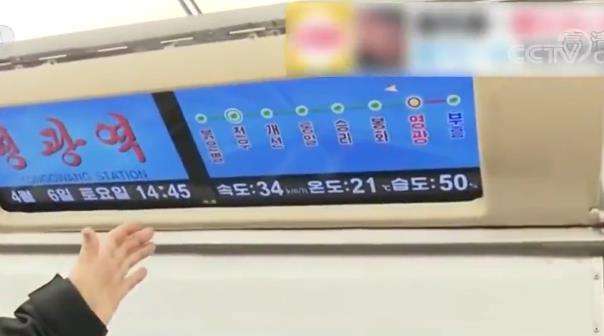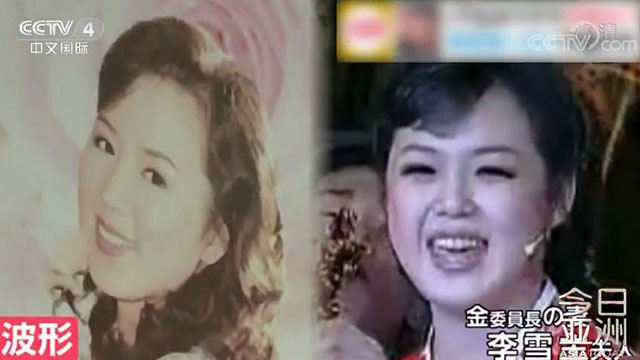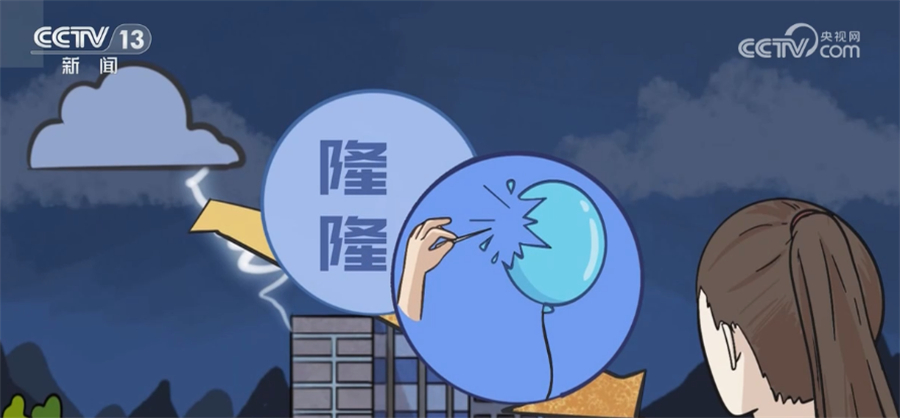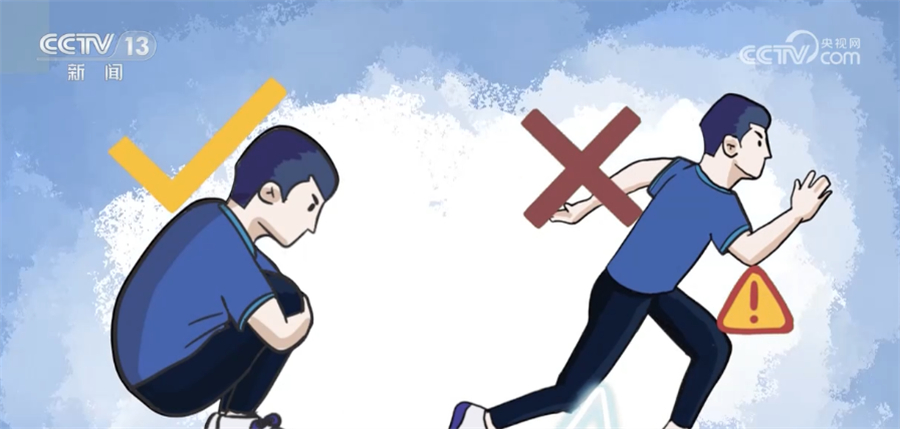????????????????Catalogue
????????Chapter I General Principles
Chapter II Conclusion of Labor Contracts
Chapter III Performance and Alteration of Labor Contracts
Chapter IV Dissolution and Termination of Labor Contracts
Chapter V Special Provisions
Section 1 Collective Contract
Section 2 Labor Dispatch
Section 3 Part-time Employment
Chapter VI Supervision and Inspection
Chapter VII Legal Liability
????????Chapter VIII Supplementary Provisions
????????????????Chapter I General Principles
Article 1 This Law is formulated in order to improve the labor contract system, clarify the rights and obligations of both parties to a labor contract, protect the legitimate rights and interests of workers, and build and develop harmonious and stable labor relations.
Article 2 This Law is applicable to enterprises, individual economic organizations, private non-enterprise units and other organizations in People’s Republic of China (PRC) (hereinafter referred to as employing units) that establish labor relations with laborers and conclude, perform, modify, dissolve or terminate labor contracts.
State organs, institutions, social organizations and laborers who have established labor relations with them shall conclude, perform, change, dissolve or terminate labor contracts in accordance with this Law.
Article 3 The principles of legality, fairness, equality, voluntariness, consensus through consultation, honesty and credibility shall be followed in concluding a labor contract.
The labor contract concluded according to law is binding, and the employer and the employee shall perform the obligations stipulated in the labor contract.
Article 4 The employing unit shall establish and improve labor rules and regulations according to law, so as to ensure that laborers enjoy labor rights and perform labor obligations.
When an employer formulates, modifies or decides on rules and regulations or major issues directly related to the vital interests of workers, such as labor remuneration, working hours, rest and vacation, labor safety and hygiene, insurance and welfare, employee training, labor discipline and labor quota management, it shall discuss with the workers’ congress or all employees, put forward plans and opinions, and negotiate with the trade union or employee representatives on an equal footing.
In the process of implementing rules and regulations and major issues, if the trade union or employees think it inappropriate, they have the right to propose it to the employer and revise and improve it through consultation.
The employing unit shall publicize the rules, regulations and major issues directly related to the vital interests of workers, or inform them.
Article 5 The labor administrative department of the people’s government at or above the county level shall, together with representatives of trade unions and enterprises, establish and improve a tripartite mechanism for coordinating labor relations and jointly study and solve major issues related to labor relations.
Article 6 Trade unions shall help and guide laborers to conclude and perform labor contracts with employers according to law, and establish a collective consultation mechanism with employers to safeguard the legitimate rights and interests of laborers.
????????????????Chapter II Conclusion of Labor Contracts
Article 7 The employing unit shall establish labor relations with laborers from the date of employment. The employing unit shall establish a roster of employees for future reference.
Article 8 When employing workers, the employing unit shall truthfully inform the workers of their work contents, working conditions, working place, occupational hazards, safe production conditions, labor remuneration and other information that the workers require to know; The employer has the right to know the basic information directly related to the labor contract, and the employee shall truthfully explain it.
Article 9 The employing unit shall not detain the employee’s resident identity card and other certificates, and shall not require the employee to provide guarantee or collect property from the employee in other names.
Article 10 To establish labor relations, a written labor contract shall be concluded.
If a labor relationship has been established and a written labor contract has not been concluded at the same time, a written labor contract shall be concluded within one month from the date of employment.
If the employer and the employee conclude a labor contract before employment, the labor relationship shall be established from the date of employment.
Article 11 If the employer fails to conclude a written labor contract at the same time of employment, and the labor remuneration agreed with the employee is not clear, the labor remuneration of the newly recruited employee shall be implemented in accordance with the standards stipulated in the collective contract; If there is no collective contract or it is not stipulated in the collective contract, equal pay for equal work shall be implemented.
Article 12 Labor contracts are divided into fixed-term labor contracts, non-fixed-term labor contracts and labor contracts with the completion of certain tasks as the term.
Article 13 A fixed-term labor contract refers to a labor contract in which the employer and the employee agree on the termination time.
The employer and the employee may conclude a fixed-term labor contract through consultation.
Article 14 An open-ended labor contract refers to a labor contract in which the employer and the employee agree on an indefinite termination time.
The employer and the employee may conclude an open-ended labor contract through consultation. Under any of the following circumstances, if an employee proposes or agrees to renew or conclude a labor contract, an open-ended labor contract shall be concluded in addition to the employee’s proposal to conclude a fixed-term labor contract:
(1) The employee has worked in the employing unit continuously for ten years;
(2) When the employing unit first implements the labor contract system or the state-owned enterprise is restructured and re-concludes the labor contract, the employee has worked continuously in the employing unit for ten years and is less than ten years away from the statutory retirement age;
(3) Having successively concluded two fixed-term labor contracts, and the employee does not have the circumstances specified in Items 1 and 2 of Article 39 and Article 40 of this Law, and the labor contract is renewed.
????????If the employer fails to conclude a written labor contract with the employee within one year from the date of employment, it shall be deemed that the employer and the employee have concluded an open-ended labor contract.
Article 15 A labor contract with the completion of a certain task as the term refers to a labor contract in which the employer and the employee agree that the completion of a certain job is the term of the contract.
The employing unit and the laborer may conclude a labor contract with the completion of certain tasks as the term.
Article 16 A labor contract shall come into effect after the employer and the employee reach an agreement through consultation and sign or seal the text of the labor contract.
The text of the labor contract shall be held by the employer and the employee respectively.
Article 17 A labor contract shall have the following clauses:
(a) the name, domicile and legal representative or principal responsible person of the employing unit;
(2) The name and address of the laborer and the number of the resident identity card or other valid identity documents;
(3) The term of the labor contract;
(4) Work content and work place;
(five) working hours and rest and vacation;
(6) Labor remuneration;
(7) Social insurance;
(eight) labor protection, working conditions and occupational hazard protection;
(nine) other matters that should be included in the labor contract as stipulated by laws and regulations.
In addition to the necessary clauses stipulated in the preceding paragraph, the employer and the employee may agree on probation, training, keeping secrets, supplementary insurance and welfare benefits.
Article 18 If the labor contract is not clear about the standard agreement on labor remuneration and working conditions, which causes disputes, the employer and the employee may negotiate again; If negotiation fails, the provisions of the collective contract shall apply; If there is no collective contract or the collective contract does not stipulate labor remuneration, equal pay for equal work shall be implemented; If there is no collective contract or the collective contract does not stipulate working conditions and other standards, the relevant provisions of the state shall apply.
Article 19 If the term of a labor contract is more than three months but less than one year, the probation period shall not exceed one month; If the term of the labor contract is more than one year but less than three years, the probation period shall not exceed two months; The probation period of a labor contract with a fixed term of more than three years or without a fixed term shall not exceed six months.
The same employer and the same employee can only agree on a probation period.
A probation period may not be agreed upon in a labor contract whose term is to complete certain tasks or whose term is less than three months.
The probation period is included in the labor contract. If the labor contract only stipulates the probation period, the probation period is not established, and this period is the term of the labor contract.
Article 20 The salary of a worker during the probation period shall not be lower than the lowest salary of the same position in the unit or 80% of the salary agreed in the labor contract, and shall not be lower than the minimum wage standard where the employer is located.
Article 21 During the probation period, the employing unit shall not terminate the labor contract, except for the circumstances stipulated in Article 39 and Item 1 and Item 2 of Article 40 of this Law. If the employer terminates the labor contract during the probation period, it shall explain the reasons to the employee.
Article 22 Where an employing unit provides special training fees for laborers and provides them with professional and technical training, it may conclude an agreement with the laborers to stipulate the service period.
If the laborer violates the service period agreement, he shall pay liquidated damages to the employer in accordance with the agreement. The amount of liquidated damages shall not exceed the training expenses provided by the employer. The liquidated damages that the employer requires the workers to pay shall not exceed the training expenses that should be shared for the unfulfilled part of the service period.
If the employer and the employee agree on the service period, it will not affect the improvement of the employee’s labor remuneration during the service period according to the normal wage adjustment mechanism.
Article 23 The employer and the employee may agree in the labor contract to keep the employer’s business secrets and confidential matters related to intellectual property rights.
For the workers who have the obligation of confidentiality, the employer may stipulate the non-competition clause with the workers in the labor contract or confidentiality agreement, and stipulate that after the labor contract is dissolved or terminated, the economic compensation will be paid to the workers on a monthly basis within the non-competition period. If the laborer violates the non-competition agreement, he shall pay liquidated damages to the employer in accordance with the agreement.
Article 24 The persons who are restricted from competition are limited to the senior managers, senior technicians and other personnel with confidentiality obligations of the employing unit. The scope, region and duration of non-competition shall be agreed by the employer and the employee, and the agreement on non-competition shall not violate the provisions of laws and regulations.
After the dissolution or termination of the labor contract, the non-competition period of the personnel specified in the preceding paragraph shall not exceed two years when they go to other employers that have a competitive relationship with their own units to produce or operate similar products or engage in similar businesses, or when they start their own business to produce or operate similar products or engage in similar businesses.
Article 25 Except under the circumstances stipulated in Articles 22 and 23 of this Law, the employing unit shall not agree with the laborer that the laborer shall bear the liquidated damages.
Article 26 The following labor contracts are invalid or partially invalid:
(1) Causing the other party to conclude or change a labor contract against its true meaning by means of fraud, coercion or taking advantage of the danger of others;
(2) The employer exempts itself from legal responsibilities and excludes the rights of workers;
(3) Violating the mandatory provisions of laws and administrative regulations.
If there is a dispute over the invalidity or partial invalidity of a labor contract, it shall be confirmed by the labor dispute arbitration institution or the people’s court.
Article 27 If part of a labor contract is invalid and does not affect the validity of other parts, the other parts are still valid.
Article 28 If the labor contract is confirmed to be invalid and the laborer has already paid the labor, the employing unit shall pay the laborer the labor remuneration. The amount of labor remuneration shall be determined with reference to the labor remuneration of workers in the same or similar positions in the unit.
????????????????Chapter III Performance and Alteration of Labor Contracts
Article 29 The employing unit and the laborer shall fully perform their respective obligations in accordance with the stipulations of the labor contract.
Article 30 The employing unit shall, in accordance with the stipulations of the labor contract and the provisions of the state, pay the laborers labor remuneration in full and on time.
If the employer is in arrears or fails to pay the labor remuneration in full, the employee may apply to the local people’s court for a payment order according to law, and the people’s court shall issue a payment order according to law.
Article 31 The employing unit shall strictly implement the labor quota standards, and shall not force laborers to work overtime or in disguised form. Where the employing unit arranges overtime work, it shall pay overtime pay to the workers in accordance with the relevant provisions of the state.
Article 32 A laborer who refuses to be commanded by the management personnel of the employing unit in violation of regulations or forces him to take risks shall not be regarded as violating the labor contract.
Laborers have the right to criticize, report and accuse the employer of working conditions that endanger life safety and health.
Article 33 The change of the employer’s name, legal representative, principal responsible person or investor shall not affect the performance of the labor contract.
Article 34 In case of merger or division of the employing unit, the original labor contract shall remain valid, and the employing unit that inherits its rights and obligations shall continue to perform it.
Article 35 The employer and the employee may change the contents agreed in the labor contract through consultation. Changes to the labor contract shall be made in written form.
The modified text of the labor contract shall be held by the employer and the employee respectively.
????????????????Chapter IV Dissolution and Termination of Labor Contracts
Article 36 The employer and the employee may terminate the labor contract through consultation.
Article 37 A laborer may terminate the labor contract by giving a written notice to the employing unit 30 days in advance. The employee may terminate the labor contract by notifying the employer three days in advance during the probation period.
Article 38 In any of the following circumstances, the employee may terminate the labor contract:
(1) Failing to provide labor protection or working conditions as agreed in the labor contract;
(2) Failing to pay labor remuneration in full and on time;
(3) Failing to pay social insurance premiums for laborers according to law;
(four) the rules and regulations of the employing unit violate the provisions of laws and regulations, and damage the rights and interests of workers;
(5) The labor contract is invalid due to the circumstances specified in the first paragraph of Article 26 of this Law;
(6) Other circumstances in which the laborer can terminate the labor contract as stipulated by laws and administrative regulations.
If the employer forces the laborer to work by means of violence, threat or illegal restriction of personal freedom, or if the employer illegally directs or forces the risky operation to endanger the personal safety of the laborer, the laborer may immediately terminate the labor contract without informing the employer in advance.
Article 39 The employing unit may terminate the labor contract under any of the following circumstances:
(a) during the probation period, it is proved that it does not meet the employment conditions;
(2) Seriously violating the rules and regulations of the employing unit;
(three) serious dereliction of duty, corruption, causing great damage to the employer;
(4) The laborer establishes labor relations with other employers at the same time, which has a serious impact on the completion of the work tasks of the unit, or refuses to make corrections after being put forward by the employer;
(5) The labor contract is invalid due to the circumstances specified in Item 1 of Paragraph 1 of Article 26 of this Law;
(6) Being investigated for criminal responsibility according to law.
Article 40 Under any of the following circumstances, the employer may terminate the labor contract after notifying the employee in writing 30 days in advance or paying the employee an extra month’s salary:
(1) The employee is sick or injured outside the work, and cannot engage in the original work or other work arranged by the employing unit after the prescribed medical treatment period expires;
(two) the laborer is not competent for the job, and he is still not competent for the job after training or adjusting his post;
(3) The objective conditions on which the labor contract was concluded have changed greatly, which makes it impossible to perform the labor contract, and the employer and the employee fail to reach an agreement on changing the contents of the labor contract after consultation.
Article 41 Under any of the following circumstances, if it is necessary to reduce the number of employees by more than 20 or less than 20, but accounting for more than 10% of the total number of employees in the enterprise, the employing unit may explain the situation to the trade union or all employees 30 days in advance, and after listening to the opinions of the trade union or employees, it may reduce the number of employees after reporting the reduction plan to the labor administrative department:
(a) in accordance with the provisions of the enterprise bankruptcy law;
(two) serious difficulties in production and operation;
(three) the enterprise changes production, major technological innovation or adjustment of business mode, and it is still necessary to reduce the number of employees after changing the labor contract;
(four) other major changes in the objective economic situation on which the labor contract was concluded, resulting in the inability to perform the labor contract.
When reducing personnel, priority should be given to retaining the following personnel:
(1) Concluding a long-term fixed-term labor contract with the unit;
(2) Concluding an open-ended labor contract with the unit;
(3) There are no other employees in the family, and there are elderly people or minors who need to be supported.
If the employing unit reduces its staff in accordance with the provisions of the first paragraph of this article and recruits staff again within six months, it shall notify the retrenched staff and give priority to recruiting the retrenched staff under the same conditions.
Article 42 The employing unit shall not terminate the labor contract in accordance with the provisions of Articles 40 and 41 of this Law if the laborer is under any of the following circumstances:
(1) The worker who is engaged in the operation exposed to occupational hazards fails to undergo occupational health examination before leaving his post, or the suspected occupational disease patient is in the period of diagnosis or medical observation;
(2) Suffering from occupational diseases or work-related injuries in this unit and being confirmed to have lost or partially lost the ability to work;
(3) Being sick or injured non-work-related, and within the prescribed medical treatment period;
(four) female workers during pregnancy, childbirth and lactation;
(5) Having worked continuously in this unit for fifteen years, and being less than five years away from the statutory retirement age;
(6) Other circumstances stipulated by laws and administrative regulations.
Article 43 When an employer unilaterally terminates a labor contract, it shall notify the trade union of the reasons in advance. If the employer violates the provisions of laws, administrative regulations or the labor contract, the trade union has the right to ask the employer to correct it. The employing unit shall study the opinions of the trade union and notify the trade union of the results in writing.
Article 44 A labor contract shall be terminated under any of the following circumstances:
(a) the expiration of the labor contract;
(two) workers began to enjoy the basic old-age insurance benefits according to law;
(3) The laborer dies, or is declared dead or missing by the people’s court;
(4) The employing unit is declared bankrupt according to law;
(5) The business license of the employing unit is revoked, it is ordered to close down or be revoked, or the employing unit decides to dissolve it in advance;
(6) Other circumstances stipulated by laws and administrative regulations.
Article 45 When a labor contract expires and one of the circumstances specified in Article 42 of this Law occurs, the labor contract shall be extended until the corresponding circumstances disappear. However, the termination of the labor contract of workers who have lost or partially lost their ability to work as stipulated in the second paragraph of Article 42 of this Law shall be implemented in accordance with the relevant provisions of the state on industrial injury insurance.
Article 46 Under any of the following circumstances, the employing unit shall pay economic compensation to the workers:
(1) The laborer terminates the labor contract in accordance with the provisions of Article 38 of this Law;
(2) The employing unit proposes to terminate the labor contract with the employee in accordance with the provisions of Article 36 of this Law and reaches a consensus with the employee to terminate the labor contract;
(3) The employer terminates the labor contract in accordance with the provisions of Article 40 of this Law;
(4) The employer terminates the labor contract in accordance with the provisions of the first paragraph of Article 41 of this Law;
(5) Terminating a fixed-term labor contract in accordance with the first paragraph of Article 44 of this Law, except that the employer maintains or improves the conditions stipulated in the labor contract to renew the labor contract and the employee does not agree to renew it;
(6) The labor contract is terminated in accordance with the provisions of Item 4 and Item 5 of Article 44 of this Law;
(seven) other circumstances stipulated by laws and administrative regulations.
Forty-seventh economic compensation shall be paid to the laborer according to the number of years he has worked in this unit and the standard of paying one month’s salary for each full year. For more than six months but less than one year, it shall be counted as one year; If it is less than six months, economic compensation of half a month’s salary shall be paid to the workers.
If the monthly salary of a worker is three times higher than the average monthly salary of employees in the local area published by the municipal people’s government of the municipality directly under the central government or the city divided into districts where the employer is located, the standard for paying economic compensation to the employee shall be three times the average monthly salary of the employee, and the maximum period for paying economic compensation to the employee shall not exceed 12 years.
The monthly salary mentioned in this article refers to the average salary of workers in the twelve months before the dissolution or termination of the labor contract.
Article 48 If the employer dissolves or terminates the labor contract in violation of the provisions of this Law, and the laborer requests to continue to perform the labor contract, the employer shall continue to perform it; If the laborer does not request to continue to perform the labor contract or the labor contract can no longer be performed, the employer shall pay compensation in accordance with the provisions of Article 87 of this Law.
Article 49 The State shall take measures to establish and improve the system of trans-regional transfer and connection of workers’ social insurance relations.
Article 50 The employing unit shall issue a certificate of dissolution or termination of the labor contract when it is dissolved or terminated, and go through the formalities of transferring the relationship between files and social insurance for workers within 15 days.
Laborers shall handle the handover of work according to the agreement of both parties. If the employing unit should pay economic compensation to the workers in accordance with the relevant provisions of this law, it shall pay it at the time of completion of the work handover.
The employer shall keep the text of the labor contract that has been dissolved or terminated for at least two years for future reference.
????????????????Chapter V Special Provisions
????????????????Section 1 Collective Contract
Article 51 On the one hand, the employees of an enterprise and the employing unit can conclude a collective contract on matters such as labor remuneration, working hours, rest and vacation, labor safety and health, insurance and welfare through equal consultation. The draft collective contract shall be submitted to the workers’ congress or all the workers for discussion and adoption.
The collective contract shall be concluded by the trade union on behalf of the employees of the enterprise and the employer; For an employer that has not established a trade union, the superior trade union shall guide the representatives elected by the workers to conclude with the employer.
Article 52 An enterprise employee and the employing unit may conclude special collective contracts such as labor safety and health, protection of rights and interests of female employees, and wage adjustment mechanism.
Article 53 In areas below the county level, industrial collective contracts or regional collective contracts may be concluded between trade unions and representatives of enterprises in industries such as construction, mining and catering services.
Article 54 After a collective contract is concluded, it shall be submitted to the labor administrative department; If the labor administrative department does not raise any objection within fifteen days from the date of receiving the text of the collective contract, the collective contract shall take effect.
Collective contracts concluded according to law are binding on employers and workers. Industrial and regional collective contracts are binding on local employers and workers in this industry and region.
Article 55 The standards of labor remuneration and working conditions in a collective contract shall not be lower than the minimum standards stipulated by the local people’s government; The standards of labor remuneration and working conditions in the labor contract concluded between the employer and the employee shall not be lower than those stipulated in the collective contract.
Article 56 If an employer violates the collective contract and infringes upon the labor rights and interests of employees, the trade union may require the employer to bear the responsibility according to law; Disputes arising from the performance of the collective contract cannot be resolved through consultation, and the trade union may apply for arbitration or bring a lawsuit according to law.
????????????????Section 2 Labor Dispatch
Article 57 A labor dispatch unit shall be established in accordance with the relevant provisions of the Company Law, with a registered capital of not less than 500,000 yuan.
Article 58 A labor dispatch unit is an employing unit as mentioned in this Law and shall fulfill the obligations of the employing unit to the laborers. The labor contract concluded between the labor dispatch unit and the dispatched worker shall not only specify the matters specified in Article 17 of this Law, but also specify the employing unit of the dispatched worker, the dispatch period, the post, etc.
The labor dispatch unit shall conclude a fixed-term labor contract with the dispatched workers for more than two years and pay the labor remuneration on a monthly basis; During the period when the dispatched workers are not working, the labor dispatch unit shall pay them monthly remuneration according to the minimum wage standard stipulated by the local people’s government.
Article 59 A labor dispatch unit shall conclude a labor dispatch agreement with the unit that accepts employment by labor dispatch (hereinafter referred to as the employing unit). The labor dispatch agreement shall stipulate the number of dispatched posts and personnel, the dispatch period, the amount and payment method of labor remuneration and social insurance premiums, and the responsibility for violating the agreement.
The employing unit shall determine the dispatch period with the labor dispatch unit according to the actual needs of the job, and shall not divide the continuous employment period into several short-term labor dispatch agreements.
Article 60 A labor dispatch unit shall inform the dispatched workers of the contents of the labor dispatch agreement.
The labor dispatch unit shall not deduct the labor remuneration paid by the employing unit to the dispatched workers according to the labor dispatch agreement.
Labor dispatch units and employing units shall not charge the dispatched workers.
Article 61 Where a labor dispatch unit dispatches laborers across regions, the labor remuneration and working conditions enjoyed by the dispatched laborers shall be implemented according to the standards of the place where the employing unit is located.
Article 62 An employing unit shall perform the following obligations:
(a) the implementation of national labor standards, provide corresponding working conditions and labor protection;
(2) Informing the dispatched workers of their job requirements and remuneration;
(3) Pay overtime pay and performance bonus, and provide post-related benefits;
(four) to provide the necessary training for the dispatched workers on the job;
(five) continuous employment, the implementation of the normal wage adjustment mechanism.
The employing unit shall not dispatch the dispatched workers to other employing units.
Article 63 The dispatched workers have the right to receive equal pay for equal work with the workers of the employing unit. If the employing unit has no workers in the same position, it shall be determined with reference to the labor remuneration of workers in the same or similar positions where the employing unit is located.
Article 64 The dispatched workers have the right to join or organize trade unions in the labor dispatch unit or the employing unit according to law to safeguard their legitimate rights and interests.
Article 65 A dispatched worker may terminate the labor contract with the labor dispatch unit in accordance with the provisions of Articles 36 and 38 of this Law.
If the dispatched workers are in any of the circumstances specified in Items 1 and 2 of Article 39 and Article 40 of this Law, the employing unit may return the workers to the labor dispatch unit, and the labor dispatch unit may terminate the labor contract with the workers in accordance with the relevant provisions of this Law.
Article 66 Labor dispatch is generally carried out in temporary, auxiliary or alternative jobs.
Article 67 An employing unit may not set up a labor dispatch unit to dispatch laborers to its own unit or subordinate unit.
????????????????Section 3 Part-time Employment
Article 68 Part-time employment refers to a form of employment in which workers are paid by the hour, and the average daily working hours in the same employer generally do not exceed four hours, and the cumulative working hours per week do not exceed twenty-four hours.
Article 69 Both parties to a part-time employment may conclude an oral agreement.
Laborers engaged in part-time employment may conclude labor contracts with one or more employers; However, the labor contract concluded later shall not affect the performance of the labor contract concluded earlier.
Article 70 The parties to a part-time employment shall not agree on a probation period.
Article 71 Either party to a part-time employment may notify the other party to terminate the employment at any time. When the employment is terminated, the employer does not pay economic compensation to the employee.
Article 72 The hourly remuneration standard for part-time workers shall not be lower than the minimum hourly wage standard stipulated by the people’s government where the employer is located.
The settlement and payment period of labor remuneration for part-time employees shall not exceed fifteen days at the longest.
????????????????Chapter VI Supervision and Inspection
Article 73 The labor administrative department of the State Council is responsible for the supervision and management of the implementation of the national labor contract system.
The labor administrative departments of local people’s governments at or above the county level shall be responsible for the supervision and management of the implementation of the labor contract system within their respective administrative areas.
The labor administrative departments of the people’s governments at or above the county level shall, in the supervision and management of the implementation of the labor contract system, listen to the opinions of trade unions, representatives of enterprises and relevant industry departments.
Article 74 The labor administrative department of the local people’s government at or above the county level shall supervise and inspect the following implementation of the labor contract system according to law:
(a) the rules and regulations formulated by the employer directly related to the vital interests of workers and their implementation;
(2) The conclusion and dissolution of the labor contract between the employer and the employee;
(three) the labor dispatch units and employers to comply with the relevant provisions of labor dispatch;
(four) the employer’s compliance with the provisions of the state on the working hours and rest and vacation of workers;
(five) the employer’s payment of labor remuneration agreed in the labor contract and the implementation of the minimum wage standard;
(six) the employer’s participation in various social insurances and payment of social insurance premiums;
(seven) other labor supervision matters stipulated by laws and regulations.
Article 75 When carrying out supervision and inspection, the labor administrative department of the local people’s government at or above the county level has the right to consult materials related to labor contracts and collective contracts, and has the right to conduct on-the-spot inspection of the workplace. Both the employer and the laborer shall truthfully provide relevant information and materials.
When conducting supervision and inspection, the staff of the labor administrative department shall show their certificates, exercise their functions and powers according to law, and enforce the law in a civilized manner.
Article 76 The relevant competent departments of the people’s governments at or above the county level, such as construction, health and production safety supervision and management, shall, within the scope of their respective duties, supervise and manage the implementation of the labor contract system by the employing units.
Article 77 If the legitimate rights and interests of laborers are infringed, they have the right to ask the relevant departments to handle it according to law, or apply for arbitration or bring a lawsuit according to law.
Article 78 Trade unions shall safeguard the legitimate rights and interests of workers according to law and supervise the performance of labor contracts and collective contracts by employers. If the employer violates labor laws and regulations, labor contracts and collective contracts, the trade union has the right to put forward opinions or ask for correction; If the laborer applies for arbitration or brings a lawsuit, the trade union shall give support and help according to law.
Article 79 Any organization or individual has the right to report violations of this Law, and the labor administrative department of the people’s government at or above the county level shall promptly verify and deal with them, and reward those who report meritorious deeds.
????????????????Chapter VII Legal Liability
Article 80 If the rules and regulations of the employing unit directly related to the vital interests of workers violate the provisions of laws and regulations, the labor administrative department shall order it to make corrections and give a warning; If it causes damage to workers, it shall be liable for compensation.
Article 81 If the text of the labor contract provided by the employer fails to specify the necessary clauses of the labor contract as stipulated in this Law or the employer fails to deliver the text of the labor contract to the laborer, the labor administrative department shall order it to make corrections; If it causes damage to workers, it shall be liable for compensation.
Article 82 If an employer fails to conclude a written labor contract with the employee for more than one month but less than one year from the date of employment, it shall pay the employee twice the monthly salary.
If the employing unit fails to conclude an open-ended labor contract with the employee in violation of the provisions of this Law, it shall pay the employee twice the monthly salary from the date when the open-ended labor contract should be concluded.
Article 83 If an employing unit violates the provisions of this Law by agreeing a probation period with an employee, the labor administrative department shall order it to make corrections; If the probation period agreed in violation of the law has been fulfilled, the employer shall pay compensation to the employee based on the monthly salary of the employee after the probation period, and according to the period that has been fulfilled beyond the statutory probation period.
Article 84 If an employing unit violates the provisions of this Law and distrains the employee’s resident identity card and other documents, the labor administrative department shall order it to be returned to the employee himself within a time limit and impose penalties in accordance with relevant laws and regulations.
If an employing unit, in violation of the provisions of this Law, collects property from laborers by way of guarantee or other names, the labor administrative department shall order it to be returned to the laborers within a time limit, and impose a fine at a rate of more than 500 yuan but less than 2,000 yuan per person; If it causes damage to workers, it shall be liable for compensation.
If the employee dissolves or terminates the labor contract according to law, and the employer detains the employee’s files or other articles, it shall be punished in accordance with the provisions of the preceding paragraph.
Article 85 In any of the following circumstances, the employer shall be ordered by the labor administrative department to pay labor remuneration, overtime pay or economic compensation within a time limit; If the labor remuneration is lower than the local minimum wage, the difference shall be paid; If it fails to pay within the time limit, the employer shall be ordered to pay compensation to the laborer according to the standard of more than 50% and less than 100% of the payable amount:
(1) Failing to pay laborers’ labor remuneration in full and on time in accordance with the stipulations of the labor contract or the provisions of the state;
(2) Paying workers’ wages below the local minimum wage standard;
(three) arrange overtime without paying overtime;
(four) the dissolution or termination of the labor contract, not in accordance with the provisions of this law to pay economic compensation to the workers.
Article 86 If a labor contract is confirmed invalid in accordance with the provisions of Article 26 of this Law, thus causing damage to the other party, the party at fault shall be liable for compensation.
Article 87 Where an employing unit dissolves or terminates a labor contract in violation of the provisions of this Law, it shall pay compensation to the laborer at twice the economic compensation standard stipulated in Article 47 of this Law.
Article 88 An employing unit shall be given administrative punishment according to law in any of the following circumstances; If the case constitutes a crime, criminal responsibility shall be investigated according to law; Those who cause damage to laborers shall be liable for compensation:
(a) forced labor by means of violence, threat or illegal restriction of personal freedom;
(two) illegal command or forced to take risks to endanger the personal safety of workers;
(3) Insulting, physically punishing, beating, illegally searching or detaining laborers;
(4) Poor working conditions and serious environmental pollution have caused serious damage to the physical and mental health of workers.
Article 89 If an employing unit fails to issue a written certificate of dissolution or termination of a labor contract to a laborer in violation of the provisions of this Law, the labor administrative department shall order it to make corrections; If it causes damage to workers, it shall be liable for compensation.
Article 90 If a laborer terminates a labor contract in violation of the provisions of this Law, or violates the confidentiality obligations or non-competition restrictions agreed in the labor contract, thus causing losses to the employing unit, he shall be liable for compensation.
Article 91 If an employing unit recruits laborers whose labor contracts with other employing units have not been dissolved or terminated, thus causing losses to other employing units, it shall be jointly and severally liable for compensation.
Article 92 Where a labor dispatch unit violates the provisions of this Law, the labor administrative department and other relevant competent departments shall order it to make corrections. If the circumstances are serious, a fine of not less than 1,000 yuan but not more than 5,000 yuan per person shall be imposed, and the business license shall be revoked by the administrative department for industry and commerce; If damage is caused to the dispatched workers, the labor dispatching unit and the employing unit shall bear joint and several liability for compensation.
Ninety-third illegal and criminal acts of an employing unit that does not have the legal business qualification shall be investigated for legal responsibility according to law; If the laborer has already paid labor, the unit or its investor shall pay labor remuneration, economic compensation and compensation to the laborer in accordance with the relevant provisions of this law; If it causes damage to workers, it shall be liable for compensation.
Article 94 If individual contractors recruit laborers in violation of the provisions of this Law, thus causing damages to laborers, the contracting organization and individual contractors shall be jointly and severally liable for compensation.
Article 95 If the labor administrative department and other relevant competent departments and their staff neglect their duties, fail to perform their statutory duties, or illegally exercise their functions and powers, thus causing damage to the workers or the employing units, they shall be liable for compensation; The directly responsible person in charge and other directly responsible personnel shall be given administrative sanctions according to law; If a crime is constituted, criminal responsibility shall be investigated according to law.
????????????????Chapter VIII Supplementary Provisions
Article 96 Where there are other provisions in laws, administrative regulations or the State Council on the conclusion, performance, alteration, dissolution or termination of a labor contract between a public institution and a staff member who implements the employment system, such provisions shall prevail; If there is no provision, it shall be implemented in accordance with the relevant provisions of this law.
Article 97 Labor contracts concluded in accordance with the law before the implementation of this Law and existing on the date of implementation of this Law shall continue to be performed; The number of consecutive fixed-term labor contracts stipulated in Item 3 of Paragraph 2 of Article 14 of this Law shall be counted from the time when the fixed-term labor contract is renewed after the implementation of this Law.
If a labor relationship has been established before the implementation of this Law, but a written labor contract has not been concluded, it shall be concluded within one month from the date of implementation of this Law.
If the labor contract existing on the date of implementation of this Law is dissolved or terminated after the implementation of this Law, and economic compensation should be paid according to the provisions of Article 46 of this Law, the period of economic compensation shall be counted from the date of implementation of this Law; Before the implementation of this law, according to the relevant regulations at that time, if the employer should pay economic compensation to the workers, it shall be implemented in accordance with the relevant regulations at that time.
Article 98 This Law shall come into force as of January 1, 2008.
